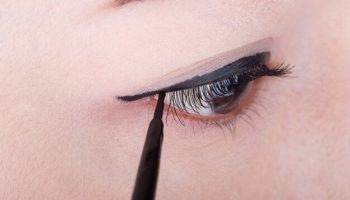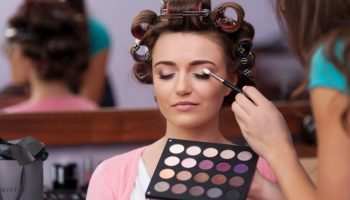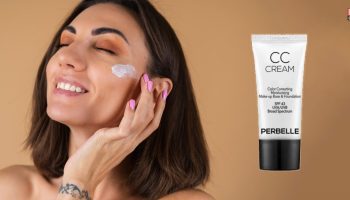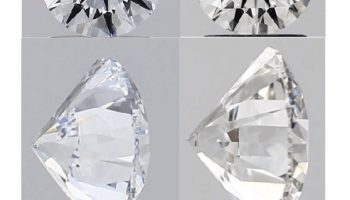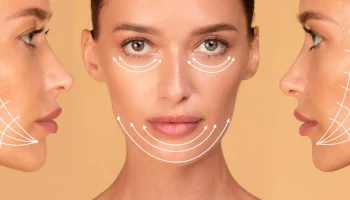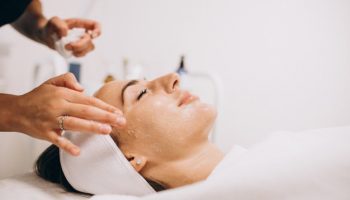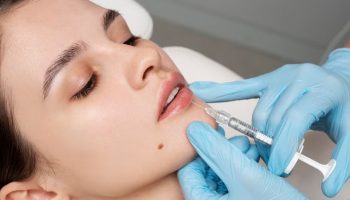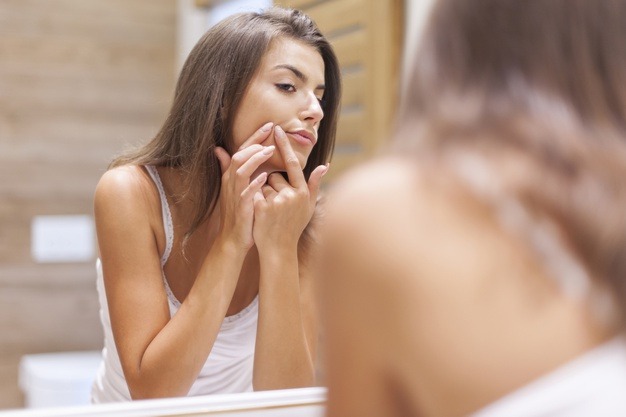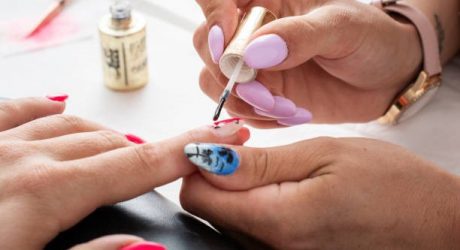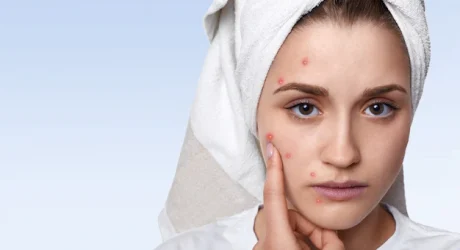For whatever type of acne you have, its root cause is a clogged pore. Same is the case for inflamed acne. Well, that is the case for a lot of people. Propionibacterium acnes, a form of bacteria, may also cause inflamed acne.
Comedonal acne, which is non-inflammatory in nature, occurs near to the skin’s surface and is not caused by bacteria.
One of the severe and most common forms of acne is cystic acne. Cystic acne happens when the pus gets pushed further into the dermis, causing it to swell and become painful. Thankfully, there are treatments for the said skin issue. It would be best to call up your dermatologist to know the cystic acne treatment cost in order for you to prepare for it.
There are so many acne types that happen to any skin type and tone. Here, we’ll learn about them and the treatment solutions you can do at home.
What Is Inflammatory Acne? What Causes It?
Inflammatory acne is a skin condition that causes sore bumps and redness with swelling. This pimple contains dead skin cells, pus, and excess oil. It is commonly seen on your back, face, shoulders, and chest.
The pimples caused due to inflammatory acne are often more profound than usual and contain pus. These bumps are inflamed and are naturally painful and sore.
Another type of inflammatory acne is cystic acne, which is a more severe type of acne. It is significant, solid, and painful. When left untreated, it can lead to dark spots and inflammation and take years to disappear.
Causes Of Inflammatory Acne?
These inflamed pimples occur when pores become clogged with dead skin cells, oil, or bacteria. It may even happen when hair follicles get clogged with these substances. Following are some of the causes:
- Genetics – One of the most common reasons why inflammatory acne occurs may be due to a genetic factor that makes you prone to acne.
- Bacteria – Microorganisms such as bacteria can trigger infection and inflammation that leads to severe acne
- Immune response – When pimples put pressure on the pore walls, it leads to the contents of the pustules spreading into the skin. This causes the body’s immune system to respond by sending white blood cells. This causes swelling, redness, pus formation, and tenderness.
- Excessive sweating can trap dirt dead skin cells and form a suitable environment for bacteria to grow within follicles or pores
- Hormones that may promote the production of sebum, which leads to the development of acne
- Age is another factor that leads to the presence of acne. It is one of those causes mainly due to the hormonal changes during our lives. Starting from puberty to menstruation and old age in men, the hormonal fluctuation during the respective cycles leads to the development of such pimples.
These were some of the causes of inflammatory acne.
Who Might Get Inflammatory Acne?
Inflammatory acne is not specific to an age group or ethnicity and race. In this case, the primary factors to consider the family history (genetics), hormone levels, and dietary habits. You may categorize people who get inflammatory acne as:
- Live in high-humidity
- Have a diet rich in sugars, milk, and fats
- Overhydrate their skin or use the wrong moisturizer (using heavy moisturizer when you have an oily skin type)
- Pick their skin or pop whiteheads and blackheads.
- Smoke
Types of Inflamed Acne You May Notice on Your Skin
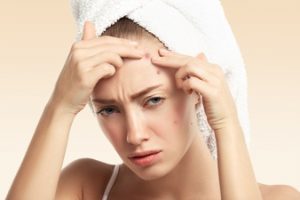
Since various forms need different therapies, it’s critical to first determine the specific form that you are experiencing. The following are the most common types:
- Cysts
- Inflamed comedonal acne
- Nodules
- Pustules
- Papules
What are my Treatment Options?
Since inflamed acne will spread and lead to scarring, treatment should be fast and immediate. Your doctor may recommend starting with medications. But of course, such treatment solutions highly depend on the acne type and its severity.
Over-The-Counter Products:
There are so many over-the-counter remedies that picking one can be difficult. Let us look at some of the major forms and types-
- Sulfur: Many acne-treatment drugs contain this ingredient, but it’s better for moderate, non-inflamed acne. It won’t make the inflamed acne worse, but it won’t help you handle it either.
- Benzoyl peroxide: Helps in inflammation and kills acne bacteria that could be stuck. It’s safer to use because it can be drying to the face.
- Salicylic acid: Sheds and gets rid of acne and dead skin. It may also help in the healing of spots and marks and the prevention of recurrence. The product can be used all over the body, but it should be followed up since it can dry out your skin.
Prescription Treatments:
When visiting your dermatologist, they may prescribe you some medications that you can take and use at home. Here are some of them:
Isotretinoin-
This oral drug, which is derived from vitamin A, is one of the most effective acne therapies available. Since it may have a variety of side effects, it’s normally used for acute cases of inflamed cystic acne that hasn’t responded to retinoids. If you’re pregnant, breastfeeding, or fear you may be pregnant, don’t take isotretinoin.
Topical retinoids-
These are vitamin A supplement derivatives that are effective at removing acne. Though OTC anti-aging products like Retin-A and Differin are good for acne. Use sunscreen before consuming them.
Hormonal treatments-
Hormonal imbalances can cause inflamed acne in some instances. Your dermatologist can prescribe hormone-reduction medications in these situations. Furthermore, birth control drugs help certain women who have more inflamed acne before and after their periods. Anti-androgen drug spironolactone can also help with nodules and cystic acne caused by abnormally elevated androgen levels.
Oral & Topical antibiotics-
If a dermatologist believes that your breakouts are caused by an overabundance of acne, they can prescribe antibiotics. They help regulate bacteria where systemic cystic acne temporarily.
On the other hand, topical antibiotics are not as effective as ingested antibiotics, but they’re better for milder forms of acne like nodules, pustules, and papules.
How to Care for my Skin?
Taking proper care of your skin should be the first step to acne prevention. If you don’t practice proper skincare, not only will you develop acne, but you can also get other skin issues like sagging skin and pigmentation. Here are some
- Apply sunscreen regularly, especially during hot days.
- Use oil-free cosmetic products.
- Avoid popping and picking on your pimples/acne.
- Facial cleansing should be done twice a day- once in the morning and at night.
- Keep your hands clean before touching your face.
- Avoid overexposure to the sun.
Wrapping It Up!
That was all on inflammatory acne and how you can bring it under control – be it through medication or lifestyle changes. It is possible to make the changes easily without thinking a lot.
]It is also one condition that leads to social exclusion or becoming introverted due to the stereotypes they experience.
Consult a professional before you start a medication to avoid any adverse reaction. You do not want to attract more problems than what already exists.
Lastly, taking proper care of your skin, apart from taking appropriate, prescribed medication, is of the utmost importance.









